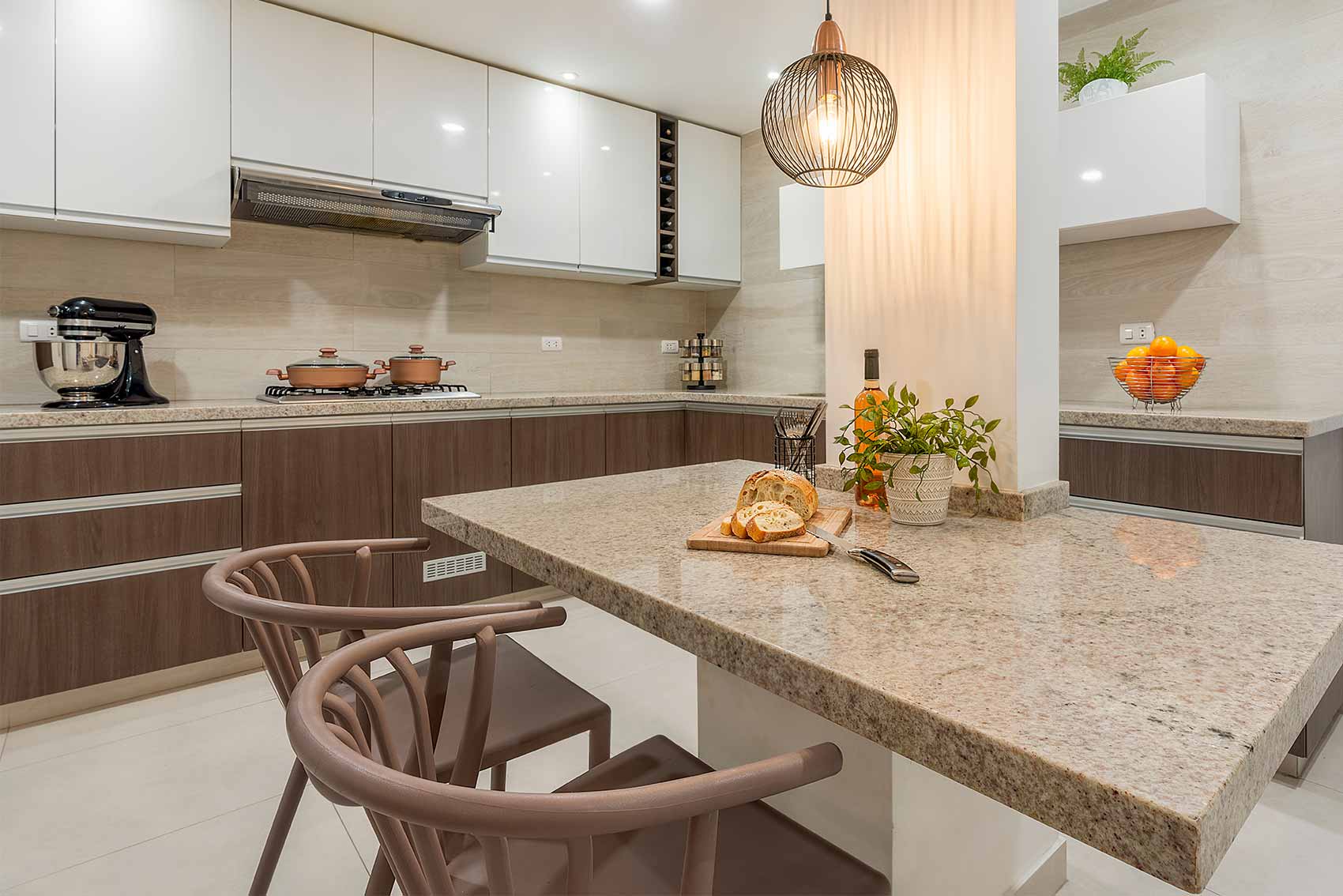Are you thinking about replacing your counters? If so, you’ll need to choose from the numerous competing materials that are available on the market. Among them, quartz and granite are definitely the most popular.
What are the benefits and drawbacks of one as opposed to the other? Even though the two materials resemble each other, certain characteristics may make all the difference to you when you’re shopping for counters. So let’s take a closer look at the advantages and disadvantages of each one!
Why choose quartz for your counters?
Quartz countertops generally contain a mixture of 93 percent ground quartz and 7 percent resin. The resulting stone is smooth and non-porous, thus making it easier to prevent stains and bacteria. Harder than granite, quartz is particularly resistant to scratches and cut marks, but not so much when it comes to heat. You’ll always need to put a trivet or hot pad underneath a hot item when placing it on the counter. As for maintenance, you may have already guessed that upkeep on a quartz countertop is easy: a little soapy water or a mixture of water and vinegar will do the trick!
Despite all of these qualities, granite owes it success most of all to the numerous available options in colors, textures and styles. Since it’s an amalgam of minerals, you can find it in solid colors, patterns, vivid or understated hues, matte or shiny finishes and more. In short, the possibilities are nearly infinite!
Why choose granite for your counters?
Far from being outdated, granite is back with a bang in kitchens everywhere! It’s a 100-percent natural material containing quartz, mica and other minerals. The blocks are extracted from quarries and subsequently polished. One undeniable advantage is that granite adds a natural, organic touch to your kitchen. And if you subscribe to the “back to basics” trend in decorating, it’s easy to understand why granite countertops have regained their popularity.
Like quartz, granite is durable and resistant. It tolerates heat better, but you should still always be careful to use some kind of protection! Granite’s resistance comes at a cost, however, as it requires the use of a sealant on a yearly basis in order to preserve its quality.
Other than that, its maintenance is comparable to that of quartz: nothing more complicated than soap and water. When it comes to appearance, it’s difficult for a natural stone to rival the plethora of styles described above with regard to quartz. Nevertheless, despite the limited number of designs, granite offers very different nuances, depending on the quarry from which it originates. As a result, you can rest assured that your counters will be unique. Since granite is a natural material, another significant advantage is that it’s more environmentally friendly—an aspect that has become a determining factor for an increasing number of consumers in this day and age.
Quartz counters vs granite counters in terms of price
In the case of either material, the price might not really help you make a decision. Quartz and granite, alike, can be more or less expensive, depending on the surface, color, style and quality. Therefore, whether for a quartz countertop or a granite countertop, the price may vary greatly according to the choices you make. Overall, we can say that granite is particularly appropriate for a country or classic look, but it can also add a lot of character in the context of a more modern ambience. As for more colorful quartz, it works perfectly in a contemporary kitchen, but can also harmonize beautifully with a more understated style.
Expert advice on choosing your countertops
The choice isn’t always obvious, which is why it’s best to consult specialists like those at Castel Granite & Quartz. They’re so knowledgeable about their products that a quick discussion with them will help guide you toward the most appropriate material in keeping with your tastes and budget.





